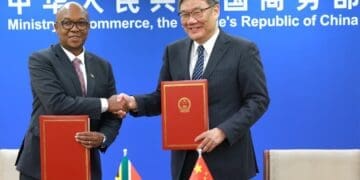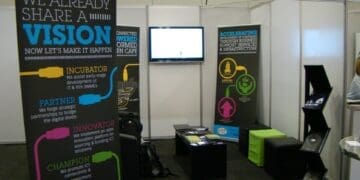By Noko Mashilo
South Africa’s manufacturing sector needs to urgently modernise, including embracing new technologies, to keep up with the rest of the world and overcome obstacles in the country, according to participants attending a Proudly South African webinar.
Pritchard Sibanda, 32, of Modern Sleep, told the Future of South African Manufacturing webinar that this was also important for customer services and economic growth.
His comments come amid a broader industry decline, with the furniture sector under pressure in part due to global players and imports.
Proudly South African CEO Eustace Mashimbye recently said during a recent National Economic Development and Labour Council community constituency meeting on policy that there has been a reduction of furniture factories from 3500 in 2000 to around 1000 in 2021. The number of those employed had dropped from 50,000 to 20,000 over the same period.
Sibanda told the webinar that bringing technology into the manufacturing space was vital for all businesses, especially considering local challenges.
“In South Africa, we are facing a number of challenges that hinder how fast we get into the market and [the] delivery of quality products. Some of the challenges we already know. They are power cuts, rising input costs and effective skills. In as far as power cuts is concerned, we can bring in power banks, generators, solar panels and back up batteries,” said Sibanda.
He said at Modern Sleep, which is based in Chamdor on the Wesst Rand, they manufactured beds as per order to keep the cost down.
“We prioritise having back up power so that when orders come in, we can manufacture and push the orders out effectively. Therefore, we do not have to worry about load-shedding because we have a backup power.”
Concerning the Internet of Things (IoT), they were looking at ways to make products smarter and production more efficient.
For example, a bed that adjusted firmness automatically and monitored sleep patterns.
Their ordering system also helped with efficiency.
“Our digital order management system helps us to know orders that are coming in and which one to prioritise and what is complex. This allows us to share the information to the production team to push orders accordingly.
“We also have supply production sink that allows us to order panels of fabrics and know the time frame of the order,” said Sibanda.
The company utilises the Zoho app.
“It is ideal for our invoicing. It can also be linked to production and suppliers,” said Sibanda, whose goal is to create smart beds.
He did warn though that embracing smart technology came with its own costs.
“We have moved from normal mattresses to smart one, the cost of the entry level into this space is very costly. It needs one to bring more partners and investors. Smart technology is the future,” said Sibanda.
Xolani Nopote, 37, who is the founder of Fuxion Shopper Pty Ltd which trades as Xshinemo and manufacturers auto-care and degreasing products in Krugersdorp, told the webinar that smart technology benefited his business.
“It enhances our operations and products by streamlining production and logistics, insight-driven decision making, development of eco-friendly and effective cleaning solutions and improved customer satisfaction and loyalty,” said Nopote.
—

































































